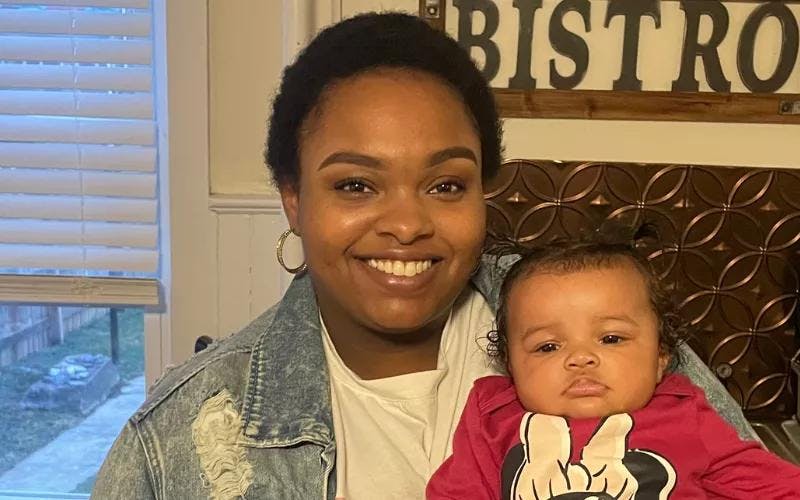Eight months pregnant, Lex Roberts-Gibson started feeling very lightheaded, had pain in her stomach, and was feeling nauseous and vomiting. Worried about her baby, the 25-year-old York woman, who has a history of high blood pressure, went to the emergency department at WellSpan York Hospital and got serious news.
Lex had preeclampsia, a potentially dangerous condition that can happen during or after a pregnancy. It causes high blood pressure and can cause organs, such as the kidneys and liver, to not work normally. It impacts about 5% to 8% of pregnancies and can lead to an early birth.
Doctors determined it was vital that Lex have her baby right away, by cesarean section. Fortunately for Lex and her daughter, Khaleesi, that was only 11 days before Lex's due date. Mom and baby did fine.
But there was more serious news.
Preeclampsia's risks to women don't end after birth. Preeclampsia puts women at an increased risk for heart disease, stroke, and high blood pressure later in life. Studies have shown that two out of three preeclampsia survivors will die from heart disease.
"Cardiovascular disease is the leading cause of death in women, and those with history of high blood pressure during pregnancy have an almost 20% risk of developing cardiovascular disease within 10 years," says Dr. Kelley Clark, WellSpan medical director for perinatal medicine.
That is why WellSpan – with input from experts including Dr. Clark – has developed a program for women with preeclampsia that targets them for added follow-up care, either from their primary care provider or, for those with other risk factors such as chronic high blood pressure, from a cardiologist. The program ensures these women are getting regular blood pressure checks, cholesterol checks, and any appropriate care related to that.
"We think of smoking, excess weight, and lack of exercise as increasing the risk of heart disease," says Samantha Stover, a registered nurse and WellSpan Heart Health Program coordinator who helps these women get connected to follow-up care. "But we don't think of having high blood pressure during pregnancy as increasing that risk. We need to look at it that way.
"We want to catch these women who just had a baby and are motivated to make lifestyle modifications, and make sure they are getting this follow-up."
Preeclampsia is more likely to occur in women who are less than 18 years old, over 35 years old, are Black, are having multiples (twins or more), have a family history of preeclampsia, or have a history of diabetes, high blood pressure, kidney disease, or thyroid disease. Preeclampsia also can occur among women with no risk factors.
Women with preeclampsia often do not feel sick. Symptoms, if they occur, can include swelling of the hands and face and a sudden weight gain. Severe symptoms include a worsening headache, troubles breathing, nausea, vomiting, vision changes, and dizziness.
In 2022, the second year of the program, WellSpan referred 800 women for preeclampsia follow-up treatment after their diagnosis. Of those, about 90 were considered high risk and were encouraged to be seen by a cardiologist.
While being diagnosed with preeclampsia can feel scary, it is also a good warning sign for women earlier in their lives, giving them a heads-up that they need to either be on medication or make lifestyle changes to impact a potentially life-threatening issue.
Lex is seeing a cardiologist before she returns to her primary care doctor for her blood pressure care. She is taking blood pressure medication and wants to lose weight.
"I feel kind of important," says the 25-year-old, who also is the mom to a 4-year-old son. "They really did take the time to monitor me, not only during my pregnancy but even after the fact, making sure I was OK. "I feel better. There are some days where my blood pressure is a little higher, but we are watching it and that's good to know I need to keep an eye on it."
To learn more about WellSpan's game-changing heart care, go here.
Tags:

